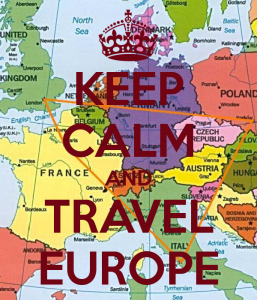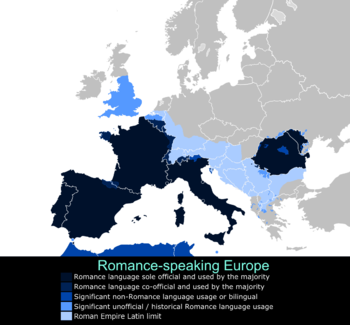Top 8 Travel Tips for Europe
Are you looking to fly away to France, escape to England, or indulge in Italy? Before you leave Canada, there are some things you should do to ensure your safety while traveling in Europe and to enjoy your time there without worry.
Read below for our top 8 travel tips for Canadians traveling to Europe.
1. Make Sure You Have All Required Documents to Travel
When booking your trip, knowing and understanding the entry requirements based on your travel documentation and the countries you are travelling to is imperative to avoid disappointment. Ontario travel agents are required to provide information regarding travel documentation needed for each person travelling on a booking.
You should make photocopies of any travel documents such as tickets, itineraries, passport, insurance policy as well as any identification and credit cards. Leave these photocopies with a friend or family member at home. In the event that you lose this information during your travels, you should also carry the same photocopies with you in a safe place separate from your travel documents and identification.
2. Pack an Adapter/Converter for Europe
An adapter for your cell phone, tablet or laptop is very important to take along. You always want to make sure you can charge your tech items to maintain contact with people at home. However, don’t forget many countries have different size plugs and voltage. Why you will need an adapter and/or a converter:
- Canadian flat pin plugs won’t fit in the European sockets, so a regular adapter is a solution.
- You’ll need to convert the European 220 volts to our 110 volts if your device is single voltage, or say goodbye to your travel hairdryer.
- Check to see if your device has dual voltage settings, or already uses 220v, then only an adaptor is needed.
There are also 2 types of adaptors, ungrounded & grounded. Ungrounded adapters have 2 prongs, while grounded adapters have 3 prongs and will allow you to plug in wherever you are in continental Europe. Adapters and converters can be bought at any electronic stores, just be sure you are buying the correct one for the countries you are travelling to!
3. Pack Light
Packing light is especially important if you are travelling to more than one destination in Europe. It’s very common to book a tour trip around Europe and while you want to bring every outfit you own, it’s important to pack smart.
Now with the luggage fee’s, there’s also the benefit of not paying for multiple checked bags. If it’s small enough to carry-on, you also won’t have to worry about waiting for your bag! If you do plan on shopping and bringing back souvenirs, it’s a good idea to pack an extra bag. Just make sure you keep the expensive items with you on the plane if you can.
For more baggage tips see our blog on 6 Travel Tips to Avoid Getting Dinged By Airline Baggage Fees.
4. Try to Sleep on the Flight to Europe
It is a long flight from Ontario to Europe; at least 7-8 hours. Bring those neck pillows, a blanket or sweater, and eye covers to block out whatever lights might stay on around you, and try to get some hours of decent sleep! This is your best bet to fight jet-lag and get you on the local schedule right when you land. You may even want to start this a day or 2 before your trip.
5. Travel with Local Currency
Make it easier to shop by bringing the local currency! This can be especially important if you’re travelling outside big tourist cities to smaller towns. Exchange a good amount of cash at your bank before you go on your trip. You’ll want to avoid ATM fees and any possible scams that can happen while trying to figure out the exchange rate at a store. For larger purchases, it’s safer to use credit cards. However, keep in mind there may be added fees for making transactions in foreign currencies. Do your research before the trip to find the best exchange rate.
6. Try to learn the Language
The more you travel the easier it can be to pick up on different languages. If you’re a Canadian travelling to the UK, you should be OK. When travelling throughout Europe, you may notice the romance languages (French, Spanish, Portuguese, Romanian, Italian…) have similarities since they all evolved from Latin. Therefore, you may be able to get away with knowing a few basics. However, when you need to communicate more than just the basics, a translation app will be your best friend. This can be extremely helpful when travelling to smaller towns outside the tourist area where it is more common that they only speak their language.
7. Avoid Roaming Charges on your Cell Phone
The worst situation to come home to is a large cell phone bill for roaming around Europe. Be sure to talk to your phone provider before you board that plane! Let them know you are leaving the country and they can give you a plan that suits your needs while you’re away. If you prefer not to be bothered with call or text plans, there are other means to communicate nowadays, like through Wi-Fi. It’s easy to find free or cheap Wi-Fi at a local coffee shop or in hotels, and this can let you use any communication or social media app.
Keep in touch with home
Also, try to stay in touch with family and friends back home, whether by e-mail, social networking or phone and keep someone posted on where you are and where you are headed next. In addition, maintaining a buddy system with friends while travelling is always a good idea.
8. Remember you’re Not in Canada Anymore!
Research your destinations
You should remember that you’re no longer in Canada and research is always a good idea before travelling to a foreign country. There may be cultural events and festivals going on you were not aware of. It’s also a good idea to brush up on your history and the area’s customs and local laws.
Bookmark Our Government’s Travel Website
Most travelers are unaware that the Government of Canada has a website that is invaluable for Canadians who wish to travel abroad. It may be found at www.travel.gc.ca
This website provides the latest travel advisories for each country regarding situations that may affect the safety and well-being of Canadians travelling abroad. This can include issues of civil unrest or strike that could affect travelling around a particular country as well as any health risks or concerns.
__________________________________________________________________
Book with a TICO Registered Travel Agency
To verify if a travel agency or website is TICO registered, check our online directory.
Take the TICO Traveller Quiz to see what type of traveller you are.
Sign up to receive quarterly travel consumer protection email updates.
For more travel tips and information, visit the Smart Traveller Guide.
All travel agencies and websites located and operating in Ontario are regulated by TICO. Registered travel agencies and websites provide additional consumer protection for your travel investment that may not be available when booking with travel agencies and websites based in other countries or provinces. For more information about how TICO helps, click here.
Any questions can be directed to tico@tico.ca or 1-888-451-TICO (8426).








